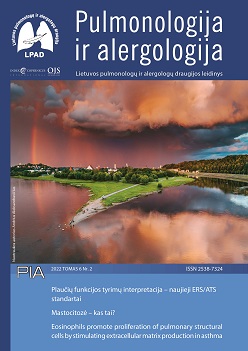IMPORTANCE OF OPTIMIZING COPD THERAPY AND EFFICACY OF ACLIDINIUM / FORMOTEROL
Abstract
Chronic obstructive pulmonary disease (COPD) is a common cause of morbidity and mortality worldwide. Respiratory symptoms, limiting daily activities and hobbies, alter the quality of life. Uncontrolled disease symptoms and exacerbations create a vicious circle for faster disease progression. Disease management accounts for a significant part of health care costs. Therefore, it is necessary to optimize the treatment of COPD on time, manage the symptoms of the disease, reduce exacerbations, slow down the progression of the disease and prevent complications. Excessive use of short-acting beta-2 agonists is associated with disease severity and symptoms, increased risk of exacerbations, and is a sign that ongoing medical treatment should be reviewed and optimized. In the absence of frequent exacerbations but with persistent and progressive respiratory symptoms, long-acting muscarinic receptor antagonist / long-acting beta-2 agonist combination treatment is appropriate. One of the newest combinations for the treatment of COPD is aclidinium bromide and formoterol fumarate, which has been shown to be effective and safe in large-scale studies. More detailed data is provided in the article.


